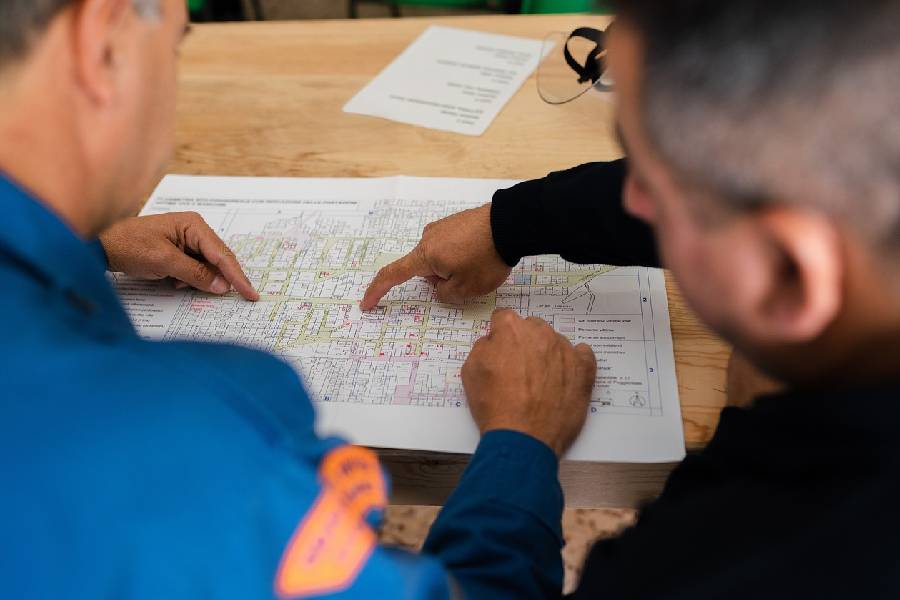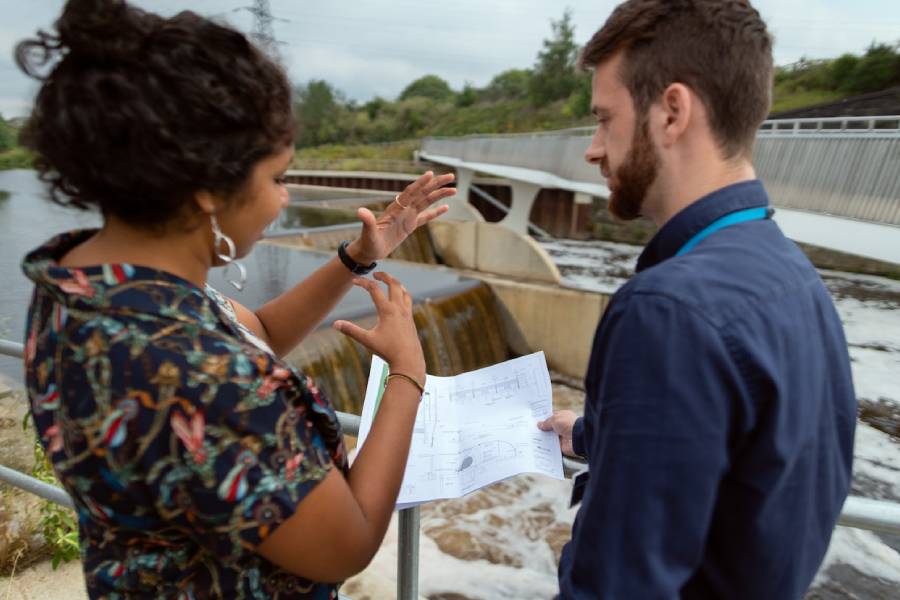Civil engineering is a multifaceted field encompassing various subdisciplines, each with a unique focus and purpose. As you explore the types of civil engineering, the sheer diversity of this field becomes apparent.
Civil engineering is essential in shaping the modern world, from designing towering skyscrapers to crafting sustainable environmental solutions.
Therefore, we will explore the various types, explaining their definitions and roles in creating the infrastructure that underpins our daily lives.

Types of Civil Engineering
Structural engineering
Structural engineers are important in civil engineering, transforming architectural visions into safe, enduring structures. At Cypress Engineering, we embrace this challenge wholeheartedly.
Our work blends physics, mathematics, and design, ensuring buildings stay strong for decades after construction. We solve complex structural challenges by fusing engineering principles with artistic vision. Our deep understanding of materials allows us to select optimal construction materials for longevity.
Our expertise extends to analyzing material microstructures. We determine steel strength by evaluating micro compositions. We assess concrete at the molecular level to understand its durability under compression.
Additionally, we examine timber anatomy to quantify stresses and aesthetic properties. Our job is to ensure that every structure component serves a dual purpose of strength and beauty.
Designs and imaginative solutions
We believe that sophisticated designs inspire builders to transform imaginative structures into reality. Overseeing construction is a transformative process, and our role is to navigate the intricate challenges of shear forces.
We ponder questions like what materials combine strength with grace? What ingenious solutions can make the impossible possible? Our structural engineers remain dedicated to solving these puzzles, ensuring structural integrity and magnificence in everything we design and construct.
Geotechnical engineering
Geotechnical engineering focuses on how geological features like soil, rock, and groundwater impact infrastructure stability. This dynamic discipline requires exploring the complex interplay between soil properties, geological conditions, and construction demands.
Our geotechnical experts meticulously examine the soil profile and bedrock conditions. Their goal is to understand subsurface properties. By sampling soil and rock, they analyze crucial aspects such as the soil’s bearing capacity and shear strength.
Simply put, bearing capacity dictates how much load the soil can support. Shear strength indicates the soil’s resistance to sliding forces and is also crucial to the stability of structures.
Transportation engineering
Transportation engineering shapes the networks that connect societies. This exciting field includes planning, designing, and constructing roads, railways, airports, and complex traffic systems. Transportation engineering is the driving force behind the infrastructure facilitating our mobility.
Such engineers design intricate networks for daily commuting, holiday travel, and freight movement. They optimize traffic flow, reduce congestion, and plan resilient infrastructure to withstand time.
Environmental engineering
Environmental engineering safeguards our planet’s well-being. This field manages waste, controls pollution, and designs sustainable, clean air and water solutions. These engineers are stewards applying science to preserve ecosystems.
Moreover, environmental engineers protect our planet and public health globally. They develop systems and solutions to mitigate pollution and manage waste. Their goal is to ensure communities have access to clean, safe air and water.
Our team consistently implements high expertise when it comes to environmental engineering. In addition, we offer a broad range of research, regulatory compliance, and environmental scientific services.
Water resources engineering
Water resources engineering oversees our most precious resource — water. This field manages and conserves water by designing water supply, flood control, stormwater drainage, and wastewater treatment systems. Water resources engineers oversee water distribution, ensuring reliable delivery to homes, businesses, industries, and agriculture.
Unfortunately, access to safe drinking water remains elusive in many places of the world. So, water resource engineers partner with communities to develop sustainable water systems, working to mitigate this global imbalance.
Water resources engineers are silent heroes in a world where water access enables human rights and environmental health. Such engineers ensure this precious resource remains accessible to all people.
Construction engineering
Construction engineering is the field that manages the realization of civil engineering designs. It focuses on the nuts and bolts of the construction process. It plans projects, budgets finances, and oversees labor and materials.
Our construction engineers are the maestros bringing designs to life. They step in once civil engineering plans are finalized. These project managers transform architectural blueprints and engineering drawings into reality. They coordinate resources, crews, and equipment flawlessly.
Additionally, we ensure the original vision is achieved. We do this precisely, meeting deadlines and budget targets. The role is to realize the perfect harmony between initial designs and final execution.
Coastal engineering
Coastal engineering addresses unique coastal challenges — managing coastlines, mitigating erosion and storms, and adapting to rising seas. Cypress Engineering recognizes coastal engineering as integrating natural conservation and structural protection.
Our areas of expertise are ecosystem restoration and coastal restoration, among others. With our coastal engineering design, we help communities and ecosystems from relentless natural forces. We implement our expertise to preserve human habitats and fragile natural environments along coastlines.
Moreover, erosion significantly threatens coastal regions. Our engineers implement innovative solutions to combat erosion and sustain the delicate coastal equilibrium between sand and sea.
We manage coastal development to promote human community growth in harmony with the environment. Adopting forward-thinking practices, we prepare for shifting climate conditions and rising sea levels.

Conclusion
Civil engineering subdisciplines are our modern world’s building blocks. Each one plays a crucial role in the planning, designing, and constructing infrastructure that allows our societies to thrive.
From the towering structures of structural engineering to the environmental preservation of water resources engineering, civil engineers shape the world we live in, ensuring its safety, sustainability, and functionality.
The diversity of these types of civil engineering highlights the critical nature of it in addressing the complex challenges of our time. So, if you require any engineering, environmental consulting, or planning, contact us today!
